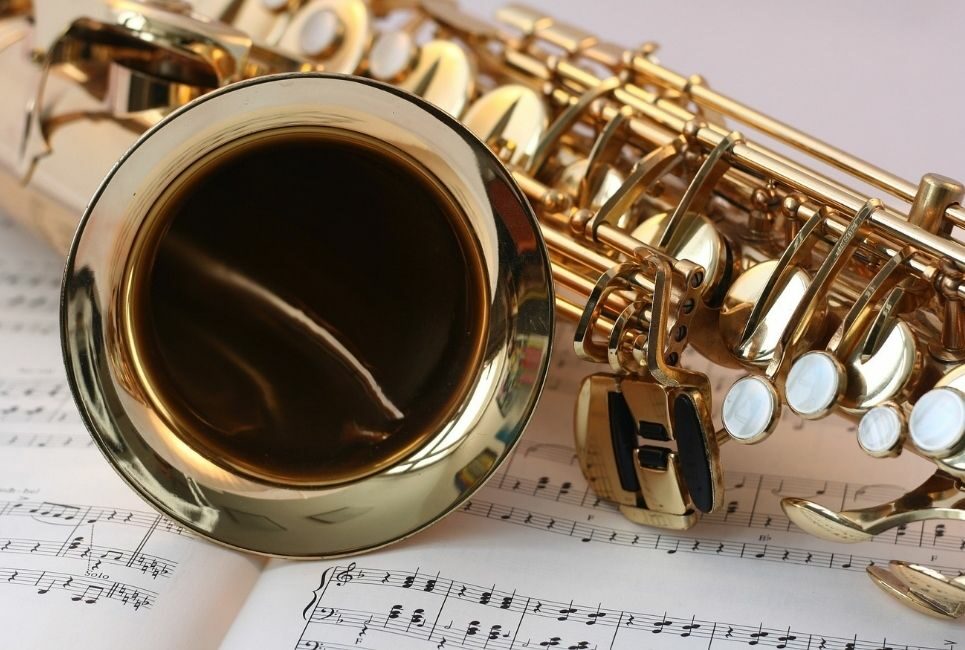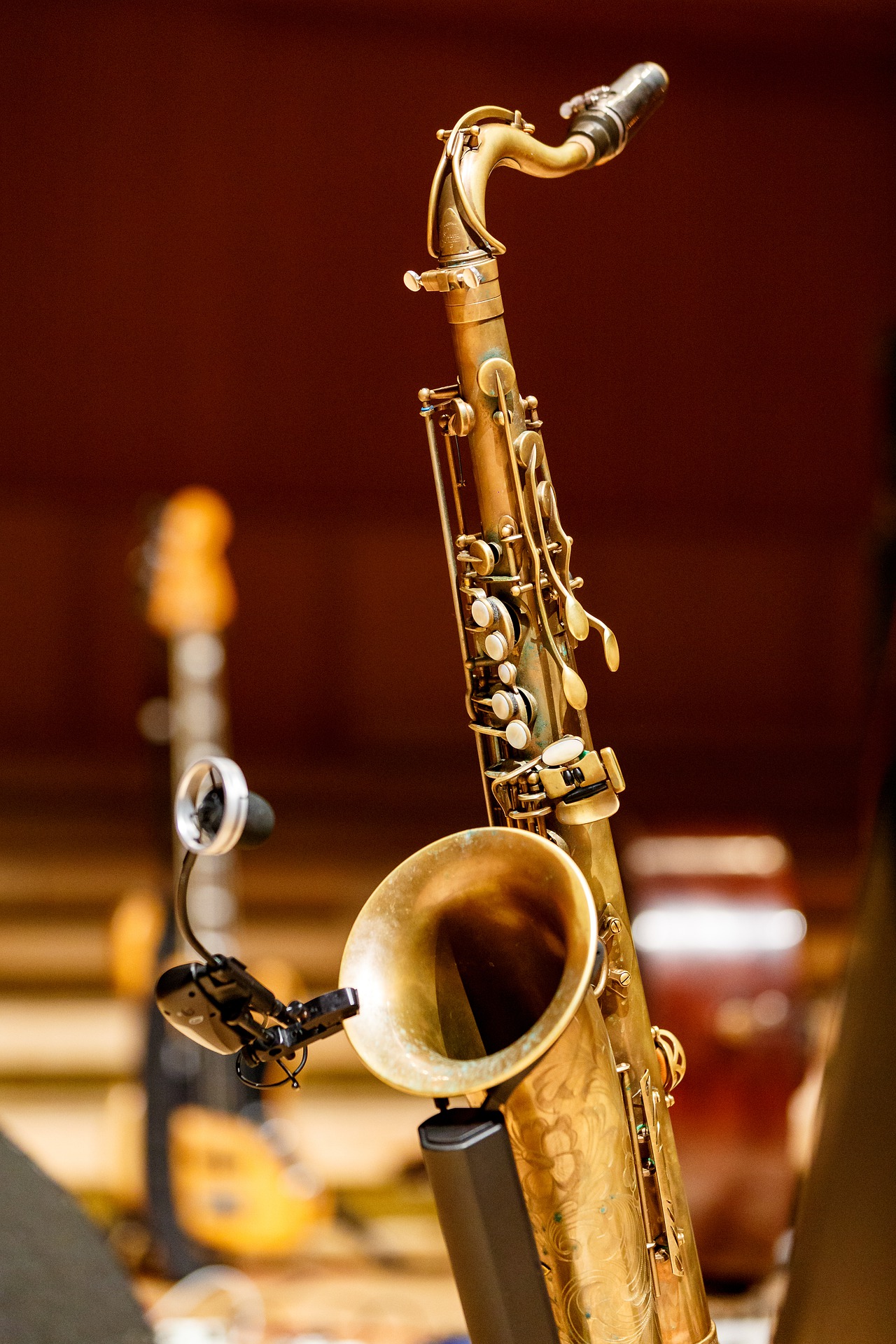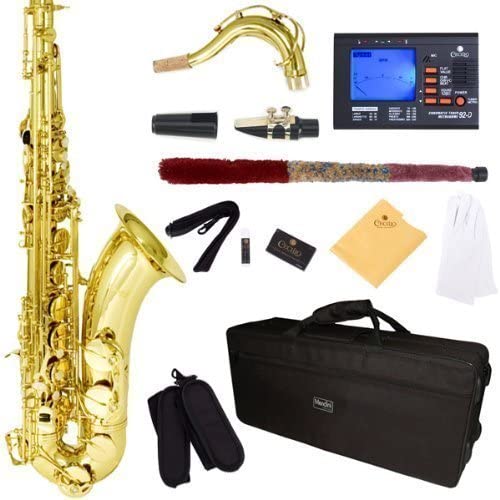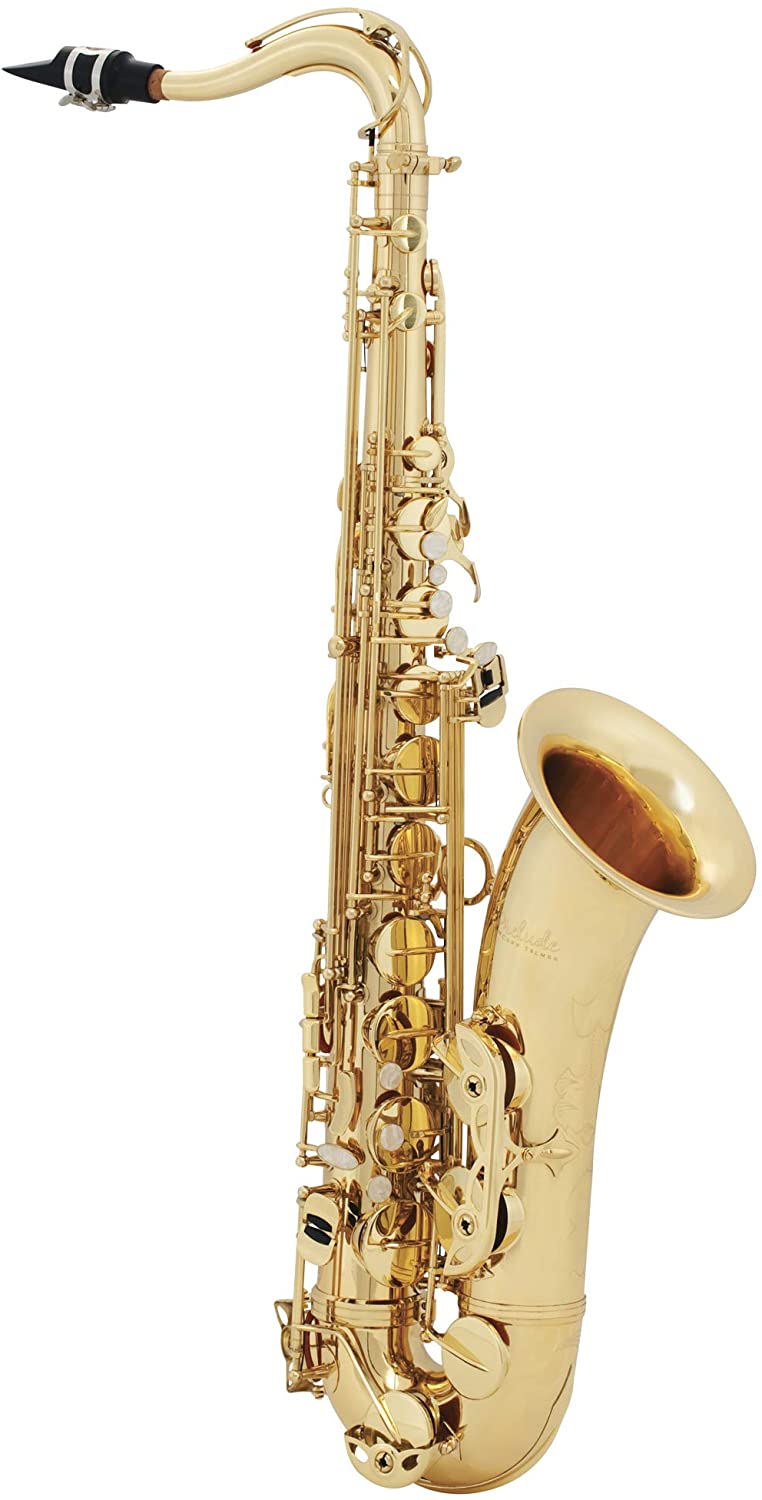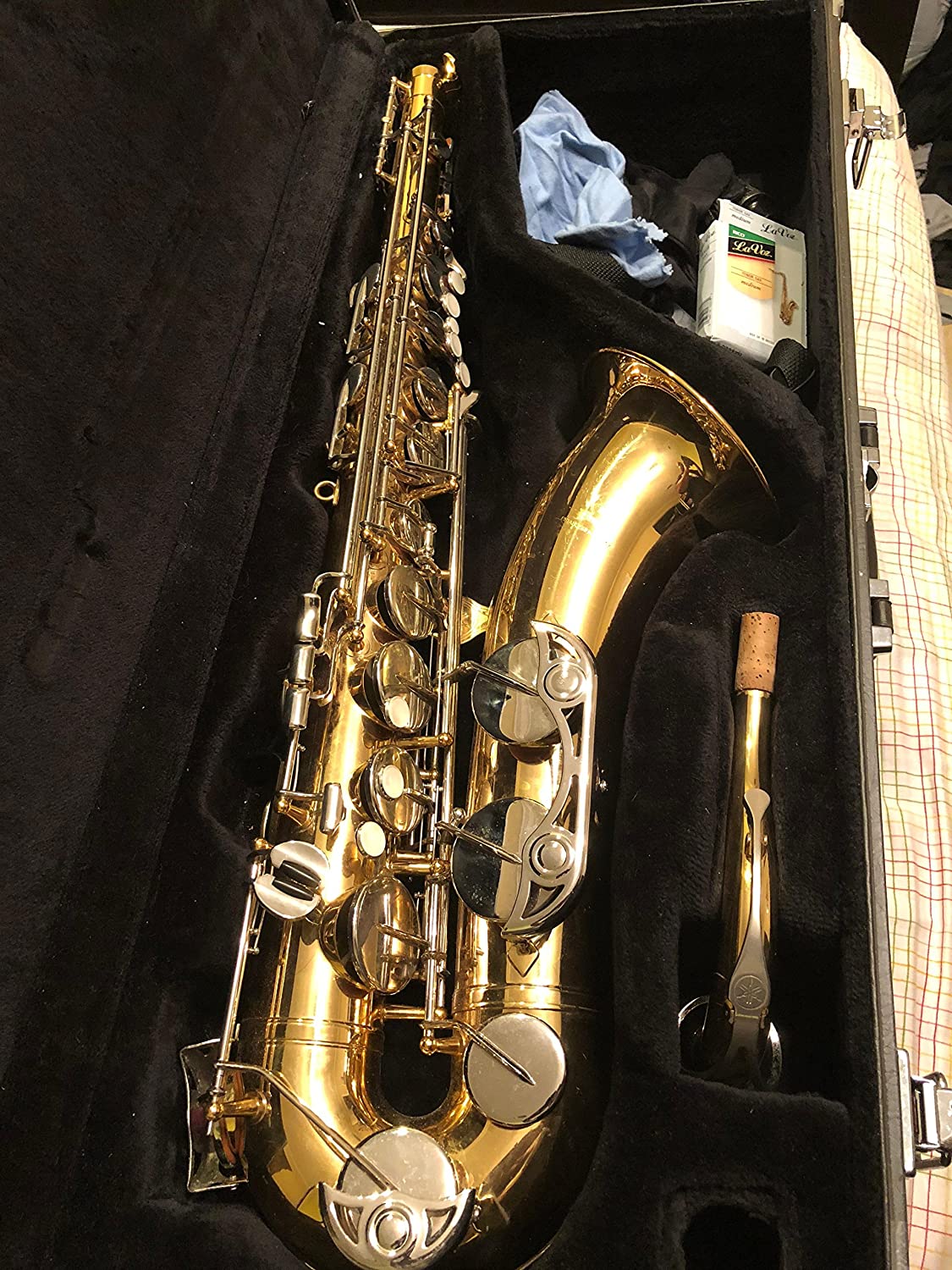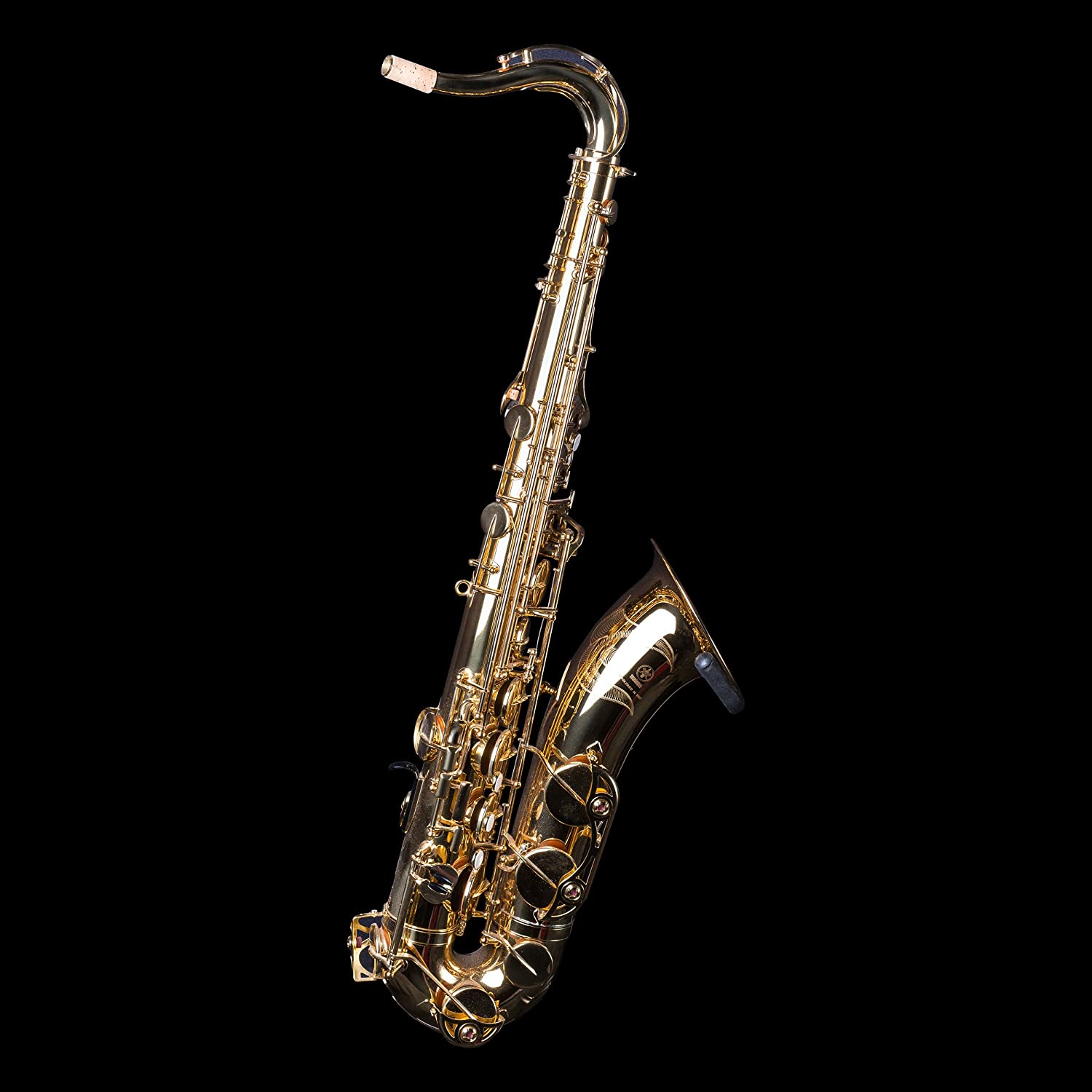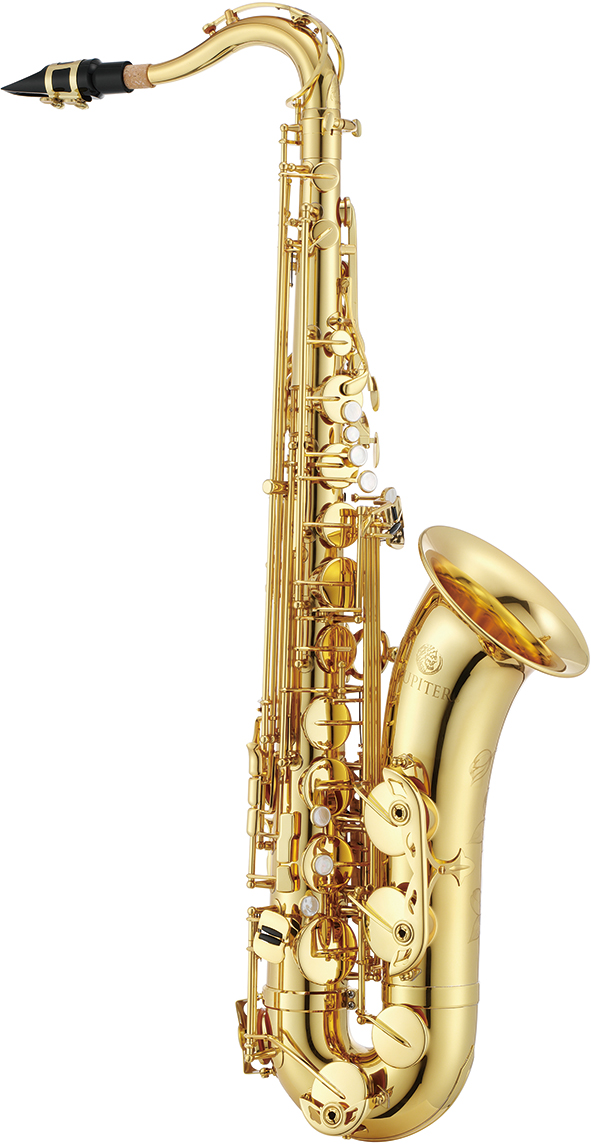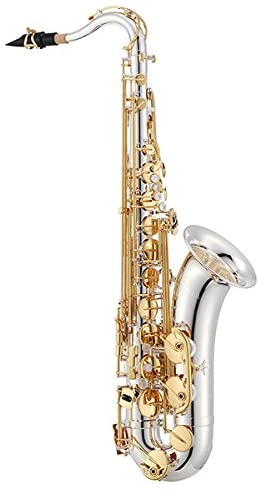- How to Find the Best Sopranino Saxophone - May 31, 2022
- How to Find the Best Contrabass Saxophone - May 30, 2022
- Trumpet Range Guide: Understanding The Entire Trumpet Range - May 19, 2022
Do you want to become the next Charlie Parker? Or would you rather play classical or contemporary music? Either way, you should know how to find the best tenor saxophone.
That way, you can minimize the roadblocks you’ll experience as you learn the instrument. Soon enough, you’ll be able to play your favorite songs, and your instrument won’t be a hindrance.
How To Find the Best Tenor Saxophone
If you know how to find the best tenor saxophone, you can make playing the instrument a lot easier. And when playing is easier, it can become more enjoyable, even as a beginner.
Whether you know how to play another saxophone, another woodwind, or not, you should have a good tenor sax. That way, you won’t have to struggle to make a sound or improve your playing.
Here are a few things to consider to help you find the tenor saxophone of your dreams.
Know Your Level
First, you need to know your level of playing either on the tenor saxophone or any saxophone in general. Even if you don’t play the tenor, having experience on the alto saxophone can be great.
Then, you don’t need to spend time or money on a beginner tenor model. Instead, you can go straight to an intermediate model that you may be able to use for much longer.
On the other hand, if you’ve never played any kind of saxophone, a beginner model is useful. It will make getting a sound fairly easy, so you can learn more efficiently.
Consider the Specs
Another thing you should think about is the specs you want your tenor sax to have. There aren’t a ton of upgrades you can make to the instrument, but there are a couple.
First, some tenor saxophones have a high F# key that lets you play a half step higher than the regular range. You can play that note without a special key, but it can be more difficult.
And while a lot of saxophones are brass with a clear lacquer, you can find saxophones with silver or even nickel plating. The material can make a difference in how the instrument sounds, so you might want to compare different options.
Set a Budget
After you figure out your level and the specs you want, you can get an idea of how much your dream tenor will cost you. If you’re a beginner, you may not need to spend a ton of money to get a good instrument.
However, more advanced models aren’t as affordable. The extra specs or special materials add to the cost, but the higher price can be worth it.
A beginner tenor sax can only take you so far with your playing. Eventually, you may outgrow your instrument and decide you need to upgrade to keep improving your skills, in which case you’ll need more money.
Test Your Mouthpiece
If you already play a tenor saxophone, you should consider the mouthpiece you use. Test out your current setup and decide if you will need to get a new mouthpiece or if you can use the same one.
Sometimes, upgrading to a new mouthpiece is all you need to do to get a better sound. But a good mouthpiece can also make it easier to find a better saxophone.
You won’t have to worry about trying different mouthpieces with each saxophone body. So you could make the testing process a lot easier. Unfortunately, you can’t use an alto sax mouthpiece on a tenor because they’re too different in size.
Choose Some Repertoire
Another essential step in finding the best tenor saxophone is to select some music to use for testing. If you play any kind of saxophone, you can use music on the tenor.
Select pieces that cover the entire range of the instrument. The music should also cover a wide dynamic range and include slow and fast sections.
You don’t want to test some aspects of a sax only to find you don’t like the feel of the keys when playing fast, for example. Be sure to choose pieces you’re comfortable playing so that you can test the instruments well.
Compare Tenor Saxes
Now, you’re ready to get your hands on a tenor saxophone or two to start testing. If you have a mouthpiece you love, you can use that with all of the instrument bodies.
Otherwise, just use the same music to test and compare the models in front of you. You should also use your current tenor saxophone to compare, so you can make sure an upgrade is necessary.
If you don’t play the tenor sax yet but do play the alto, you can use your alto to figure out what you like from a sax. Then, you will be able to look for similar qualities from the tenors that you try.
Minimize Variations
As you test a few different tenor saxophones, you should keep the tests as similar as possible. This could mean using the same mouthpiece, the same music, and playing the instruments in the same climate.
The fewer variations you have in your test, the easier it will be to tell which instrument is the best for you. Using the same setup with each tenor body can help isolate the body from the other factors.
If you use a different mouthpiece and play different music on each model, there may be a lot of differences. Sadly, it can be almost impossible to figure out if the differences come from the instruments or the other changes you made.
Really Listen
When you test the different tenor saxophones, listen closely to your playing. Try not to focus too much on getting the right notes, so you can have more energy to listen to the sound.
You should also pay attention to how each saxophone feels. As you play, listen for any nuances, and consider what you do or don’t like about a particular model.
If you can’t listen well as you test, record yourself to listen back. That way, you can catch small things you may have missed, and you can make sure to choose the right model for you.
Narrow Your Choices
As you test the different saxophones, eliminate any that you don’t like. It doesn’t matter if what you don’t like is how the keys feel or how hard the extremely low or high notes are to produce.
You shouldn’t buy a tenor saxophone that doesn’t meet all of your needs. Of course, you may want to just get something so that you can start learning.
But when you have a tenor sax and are looking to upgrade, you want to make the best decision. Sometimes, it’s better to eliminate more options than to compromise.
Keep Looking
If you don’t like something about all of the tenors you try, it’s okay to keep looking. You can find tons of good saxophones on the market, so you might not be too far from finding your perfect match.
Look at different music stores and online at a few new websites. Inventory comes and goes from music retailers, so they may get a new saxophone in a week or so, and that could be the one for you.
Consider Used Models
As you look around for a good tenor saxophone, don’t ignore the used market. Buying a used model can help you get a good quality instrument, and it may not cost as much.
Now, you do have a bit more risk of buying a used instrument, especially over the internet. So try to look for used models that you can test in person before you pay for it.
That way, you’ll have more options to try before you get a sax. And you won’t have to worry about not being able to get your money back if you realize you don’t like playing the tenor.
Best Tenor Saxophones
Knowing how to find the best tenor saxophone is one thing. However, you should also know of some of the best models on the market.
Then, you won’t have to waste time shopping for models that aren’t worth your time or money. Instead, you’ll be able to get straight to the testing phase, and you can find a model you love.
Here are some tenor saxophones you should try at different levels of saxophone playing.
Mendini by Cecilio Tenor Saxophone
If you’re on a strict budget, you might want to consider the Mendini by Cecilio Tenor Saxophone. At a fraction of the cost of other models, this is perfect for beginners who aren’t sure if they’ll stick with the sax.
The model has all of the same features as other tenors, including keys that you can use to play up to high F. You can even choose between gold and nickel plating, so you can get the look and sound you want.
It also comes with accessories, such as reeds, a tuner, and cleaning supplies. That way, you’ll be able to keep your instrument in good condition.
Pros
- Affordable
- Comes with accessories
- Different materials
Cons
- Not the best quality
Selmer Tenor Saxophone
Another somewhat affordable model to consider is the Selmer Tenor Saxophone. The sax features a high F# key, so it’s great if you want to play in the high register.
You can adjust the C# key easily with the adjusting screw, and the left-hand table keys are easy to navigate. This sax has a dark lacquer that looks and sounds good.
Ribbed construction makes the instrument durable and easy to maintain. It’s a great choice if you want to play the saxophone for a long time.
Pros
- Comes with a mouthpiece
- Good design
- Durable
Cons
- Some quality control issues
Yamaha YTS-26
The Yamaha YTS-26 is an excellent beginner tenor saxophone. It has brass lacquer on the body, and the keys are nickel, which is a pretty standard combination for saxes.
You can adjust the thumb rest so that it’s comfortable for you to play the instrument. And the low B-C# connection makes it easy for your left pinky to play the low notes.
The new neck receiver works great and offers a smooth connection to the body. It’s great for beginners or anyone switching from another instrument.
Pros
- Good design
- Comfortable
- Easy to play
Cons
- A bit expensive
Jupiter JTS700
Another beginner model to try is the Jupiter JTS700. It has a lot of the same specs as the Yamaha, including a brass body with lacquer, but the keys are brass instead of nickel.
This model is pretty durable, so you can put it through a lot before it starts to break down. That makes it an excellent choice for students, and you can play it inside and outside.
You’ll get a mouthpiece and ligature, so all you need is a reed to start playing. And with the high F# key, you can use this model for a long time as you learn and advance as a saxophonist.
Pros
- Good features
- Easy to play
- Durable
Cons
- Somewhat expensive
Yamaha YTS-480
At the intermediate level, you might be ready to upgrade to the Yamaha YTS-480. The model responds quickly, so you can stay with the beat of other musicians around you.
Its warm tone is suitable for playing classical and jazz music. The keyguard helps protect the lower keys, and you can even swap out other necks to help get the sound you want.
You don’t need a huge budget to afford this model, but it’s not cheap. Be sure to give this instrument a try when you start to outgrow your beginner tenor.
Pros
- Great upgrade
- Versatile
- Durable
Cons
- A bit expensive
Jupiter JTS1100
Jupiter also has an intermediate model, the JTS1100. This saxophone features a lacquered body and lacquered keys, so it looks and sounds amazing.
Metal tone boosters help seal the keys on the saxophone, so you can get a full, bright sound. You also get a unique saxophone neck that can help you get a darker tone than some other models.
If you play a beginner Jupiter sax, you might find this is a good upgrade. But you can switch to it from any other brand of saxophone.
Pros
- Good look and sound
- Nice upgrade
- Versatile tone
Cons
- Not the cheapest
Jupiter JTS1100SG
Maybe you try the JTS1100 but feel like something is missing. You might find you love the Jupiter JTS1100SG, which is very similar but features silver plating.
The silver can offer a bright and brilliant sound, and it looks unique. However, you can also get a dark sound, especially when playing in the low register.
Jupiter makes it easy to play this model, and the left pinky keys are all easy to reach. So if you have smaller hands, you may find this saxophone is perfect.
Pros
- Unique look and sound
- Different tone qualities
- Easy to play
Cons
- More expensive
FAQs About How to Find the Best Tenor Saxophone
Question: Why should you play the tenor saxophone?
Answer: You should play the tenor saxophone because it offers a unique sound that you can’t get on an alto or bari saxophone. The tenor’s range falls between the alto and bari, so you can enjoy both melodies and a taste of the bass line.
If you want to play different parts in a band or quartet, the tenor is great. Plus, it’s fun to play, and that’s probably the best reason to at least give it a try.
Answer: A lot of beginner sax players start on the alto because it’s not too big, and it’s relatively affordable. However, if you want to play more music, you can switch to the tenor with a good instrument, mouthpiece, and reeds.
While you will use the same fingerings on both instruments, the difference in size requires unique accessories. You will also need to get new tenor sax music if you want to play with others because it’s in a different key than the alto.
Answer: If you play the clarinet, learning the tenor saxophone can be great. You can use both instruments to play jazz or even in the pit of a musical or opera.
But since the saxophone is different from the clarinet, you’ll need to buy new reeds and accessories with your new instrument. However, you may be able to play the same parts because the clarinet and tenor sax are both in Bb.
Answer: Having a good tenor saxophone can make it easier to get a sound as a beginner. While an advanced player may be able to produce a sound on any sax, they won’t have to struggle as much with a good model.
If you have to work hard to get a sound, that can discourage you from wanting to play. So give yourself the best chance of enjoying music by getting the best tenor saxophone you can afford.
Answer: You can find the tenor saxophone in the wind ensemble or band, so you can play classical music there. The tenor is also a standard part of the saxophone quartet, which is another classical ensemble.
However, the tenor isn’t a standard part of the orchestra. Overall, the tenor is better for playing jazz because it’s common in jazz bands and combos. But if you want to play classical music, you can do that as well.
Answer: Tenor saxophones require a lot of materials to produce. The mechanism is also complex, so people making the sax need to spend a lot of time making the mechanism work well.
Add together the cost of materials and labor, and you can expect to pay a decent amount for a tenor. But it is worth it to get a good quality model.
Final Note On How To Find The Best Tenor Saxophone
If you don’t know how to find the best tenor saxophone, you could end up with a dud. Then, you might not want to practice, and you may quit music entirely.
Fortunately, models from Yamaha and other brands are good. That way, you can have the support you need as you learn and improve as a tenor saxophonist.
Looking for more interesting readings? Check out:

